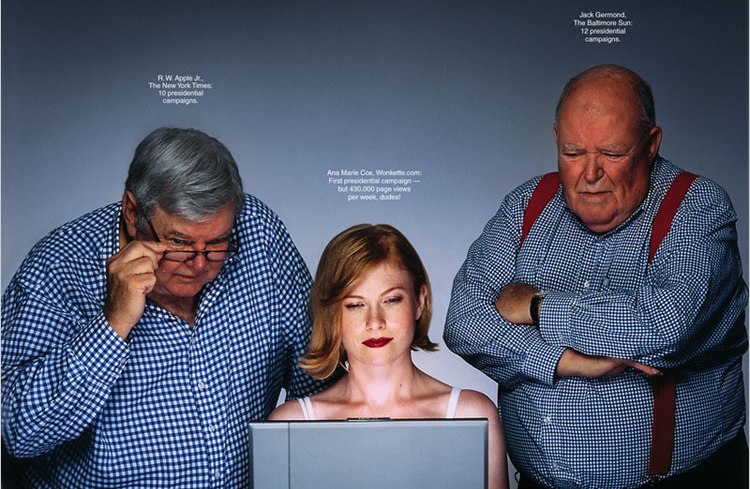In my first op-ed in a while, I answer this question today at PRWeek. Here’s the text:
Clients often ask, What is new media? To answer this, I like to step back and ask, What is public relations?
Public relations is the practice of improving public perception. In a word, it’s promotion. A corollary of this is strategizing: What media should you use to get your message out?
New media is simply one of these outlets; specifically—and appropriately—it’s the newest outlet. But instead of developing relationships with producers on TV and radio shows, or editors and reporters at newspapers and magazines, we new media folk work with online sources: bloggers, podcasters, Web masters, news aggregators.
Our old media colleagues spend their days on the phone with journalists, meeting them for coffee, drafting press releases, crafting pitches, and compiling media lists. In essence, we do the same thing, but with a different vocabulary and under different rules.
The first difference is that reporters report because it’s their job. By contrast, bloggers blog because it’s their hobby; it’s what they do for fun.
Second, whereas reporters carry business cards, have a business phone number, and are typically always accessible via BlackBerry, bloggers rarely list their phone numbers, let alone their addresses, and often work in the early morning or at night. In fact, many of Matt Drudge’s best sources—even his West Coast editor—never talk with him on the phone; their entire relationship revolves around e-mail.
Third, anything a reporter writes—even the idea to pursue a story—is signed-off and then vetted by at least one editor. By contrast, bloggers write what pops into their mind. Similarly, there are no officially observed rules regarding “off the record” or “on background.” Unlike Judy Miller, bloggers are not going to go to jail to protect you as a confidential source, and it’s as easy as copying and pasting for a blogger to publish what you thought was private correspondence.
Finally, while reporters have long relied on PR people, bloggers tend to be skeptical of us. The reason: While it’s common to spam a hundred reporters with a press release, this is a cardinal sin within the blogosphere. A press release clutters a blogger’s inbox, which, again, is personal rather than one his paycheck requires him to monitor. A release is usually irrelevant, and the lack of personalization, especially if he’s CCed, or worse, BCCed, is insulting.
In fact, if you send a high-profile blogger a press release, you may very well find your e-mail address being made public as a result—which, of course, subjects you to real spammers. What’s worse, they may threaten to blacklist members of your firm.
None of this is to paint bloggers with a bad brush. I think the world of these people, and, in fact, am one myself. But in order to get the results you want, it behooves you to treat bloggers on their terms, rather than your own.




